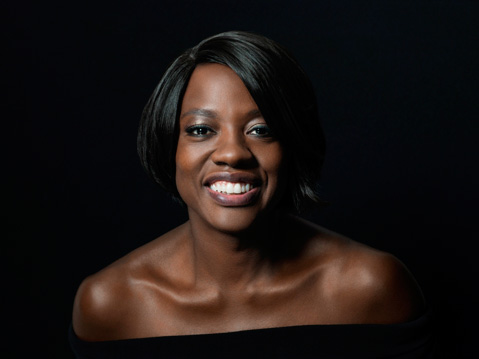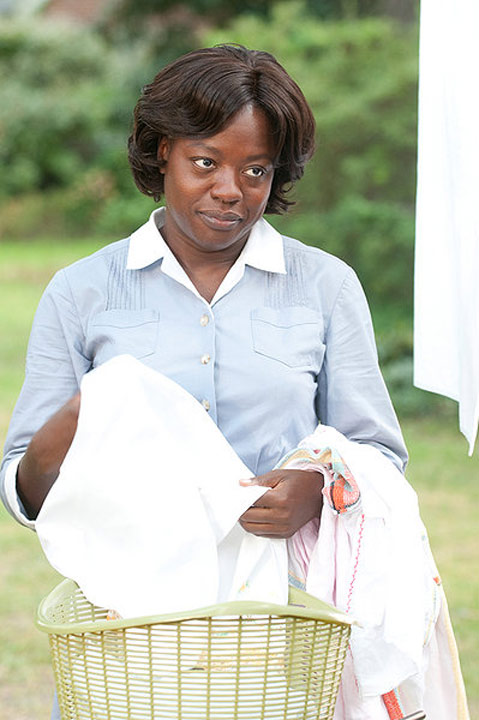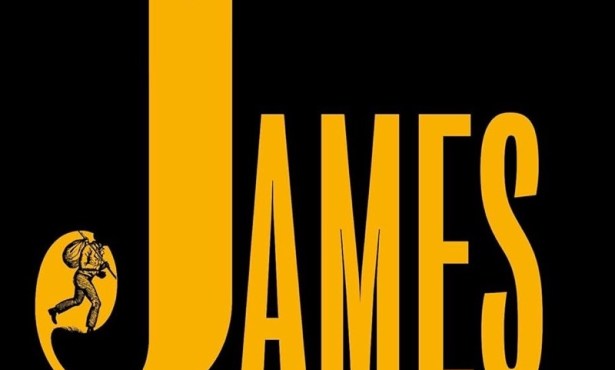Viola Davis Becomes a Star

“It’s a bit crazy,” said Viola Davis, “it’s award season and so there is a lot of hoopla and hysteria.” And Davis, who is being honored at this year’s SBIFF with the Outstanding Performer of the Year award, knows of what she speaks. Since her visceral performance in 2008’s Doubt, Davis’ star has been rising at a meteoric rate. Her graceful turn as Aibileen Clark in The Help this past year, has cemented her status as an actor who can carry a movie.
Last week I spoke to Davis over the phone. With her 18-month-old girl cooing in background, Davis described channeling Aibilieen, creating a character from a best-selling book, and her acting “surprise” moments in Doubt.
How did you prepare for your role in The Help? Well, I really had to channel people that I already know who are domestics. Like my mother and my grandmother. They were born around that same time as Aibileen and all of them are very hard women. And when I say hard I don’t mean that when they walked into a room they were mean. But there was something they wore in their eyes and their skin and their carriage where you just knew that they had lived a life. That they had seen the hardships of life. So I had to really channel that. And then by doing research; we watched documentaries, we watched Eyes on the Prize and ones about maids. And I was in Mississippi a month before shooting, and then reading the book. The text is your bible. The text tells you absolutely everything you want to know about your character.
Did you like working from a book? With a book you have a lot more, because you have the internal dialogue, and the internal dialogue tells you everything. With Aibileen’s character, her whole world was internal dialogue in the book, which was a problem, too. A lot of things are [revealed] before the action, before they even speak that can help you draw a picture of what their emotional life is and slowly you give yourself over to as an actor and you create a person. And the book is so rich, it’s 500 pages of basically character studies.
So was it a pretty satisfying film to do because of all of those elements? It was a satisfying film to do because of all of those elements, because you were working from a book. But that was also a challenging element, too. I am one of those actors who when I was doing stage I always did new plays because I don’t like anyone having expectations when they see my work. I don’t like anyone having any preconceived notions of a role that someone else has played prior to you or an idea of who the character already absolutely should be. What people don’t understand is that the audience is part of the collaboration. So if they come in with a whole set of expectations and then when they see you, if they shut down, there’s no way of getting in there. And the book came with 5 million readers so people already had a very specific idea of who these characters were and who should play them and who they should be.

Did people tell you that you shouldn’t have been the star? Absolutely. And that’s something to be expected. I don’t fault people for that. People have shared their opinion of who Aibileen should have been, how old she should have been, what she should have looked like. But I always say, to critique an audience, you have to be careful about what you remember because sometimes you don’t remember things how they really happened. It’s the same thing with reading. People don’t really remember what they read. Everyone felt that Aibileen should be very old. Abilene is only 51 in the book. And everyone absolutely felt that she’s obese. There is nothing to suggest that Aibileen is obese. Maybe a little overweight, but definitely not as big as Minnie would be perceived.
You took that role and just made it your own. Thank you, I appreciate that. I’m one of those actors that the thing I absolutely love about acting is when you already have a preconceived notion of how a scene should be played or what a moment should be and something happens and it’s not that. Something surprises you within the scene, when you leave yourself alone and all of a sudden you’re surprised at how a word comes out, for example.
Did you have any of those surprise moments in The Help, or maybe Doubt?In Doubt, absolutely I had that. Doubt is very much an allegory, so the trap you can get into is playing it as the allegory instead of creating human beings. It’s the interpretation of the audience that sparks conversation about something higher, about social issues or whatever, but you can’t play the social issue. So with my character, because people already made a judgment on her, because people thought she sacrificed her son to this man who was a gay priest, and everything people feel about the Catholic church now, they thought, okay, she’s got to be a horrible woman. She’s got a son and she’s letting this priest molest him because she feels like she is sacrificing him for the greater good, she’s a horrible person and therefore she needs to be played in a way that’s unsympathetic.
Well, that didn’t happen. I don’t know how to play a character that’s cold and mean and shut down. To me that’s a comment. I don’t know anybody like that. I know people who do the best they can with what they know. And maybe you are watching a train wreck, but they are doing the best they can with what they know. And whatever your perception of them are, or your judgment of them is, could not be so sympathetic. But I just didn’t see a woman who is, especially a black woman in 1968, who is paying, who her and her husband are paying to put their child in a Catholic school and she’s pleading to a nun to keep him in the school. I just didn’t see a cold woman. But that’s just to say that that character surprised me. As soon as I read her I probably had the instinct to that I had to play her cold. And there was no way of playing that.
You’ve won several awards for your stage work. Is that different from Hollywood awards hoopla? Not really. You still have a huge sense that it’s about winning and everybody wanting you to win and it meaning something to win. It’s just that with film it’s on a different level in terms of how many people are weighing in, how many people are watching. The stakes may be a little bit higher, because, you know, in the average play, you are reaching at least 2,000 people a night. In a film, what, you’re reaching millions? It’s just on a scale where you are just more exposed in film, much more vulnerable.
How has that been for you in the last few years getting all the attention with Doubt and The Help? I definitely have seen a shift in my career since even Doubt. I was in relative obscurity before Doubt, and now people just know me more. My anonymity is gone. Before it used to “Oh you’re that girl,” now it’s “Hey, it’s Viola Davis.” There was a safety in anonymity before, a safety in terms of my work, in failing and succeeding, in being able to enjoy the process and not feel like eyes were on me. In acting terms it’s very important to be able to fail, it’s very important to be able to look at your work in the course of an entire film and see the things that you could change. The things that you like and you can keep and to learn from that. It’s harder to do that when your anonymity is gone.
And I imagine there is more pressure for you now as your roles get larger, and actually carrying a film.
Absolutely.
Are you more conscious of your acting now or are you thinking about each move in a way that makes it difficult to loose yourself? Well, that becomes the challenge. In terms of not watching yourself and not having a sense that Viola Davis the person is preceding you into the room, and whatever the expectations are with that persona, understanding that that has nothing to do with the work. Putting that ego aside and the vanity of what it would mean for people to put me on the Worst Dressed List (laughs) or just leaving that aside and coming to a project almost with a blank slate and being open and to taking risks.
Did you find that you didn’t have that challenge doing stage? I just think it’s the same thing. The only difference is that there are more eyes on you in film. With stage there’s still that sense that, especially with stage because you are doing eight shows a week and so you have eight chances to really fall flat on your face.
And you get instant feedback from stage audiences. Absolutely. And with stage, if you can’t do it, it becomes very apparent right away. There is no covering it, there is no editor, there is no atmosphere music in the back that can swell up and compensate for the fact that emotionally you’re not there. (Chuckles) You either have to be there or you’re not. So it’s the same feeling of fear of failure; you have that fear that people are going to find you out, the fear that this is going to be the last job. There’s still that fear, it’s just on a smaller scale with stage. And actually on stage because, as you said, you get the instant feedback you know right away. It’s apples and oranges.
Is there a difference how you prepare for a stage role and a film role? You do prepare the exact same way in terms of creating a character. With stage you have four or five weeks of rehearsal and in film you don’t have that same luxaury. You have to be there and everything shoots out of sequence, but still you have to create a character that is a living breathing human being that you want people to be affected by. The same objective applies.
When people go to see films they go for all the reasons they go to see stage. They want to have a human experience, they want to be moved. They want to see something real, they want to be entertained. But at the same time, the thing about film, too, is that they want to see their celebrities. They may want to see how cute someone is. They may go to see it because it’s already made $200 million at the box office and everybody has seen it so they want to see it too. The reasons people want to see a film are sometimes more than just for the work itself. Whereas with stage, people really come to see the work. And that’s it. They aren’t coming to see it for any other reason than that. They understand that they’re going to plop down $132 or so a ticket to just see the process of acting.
They are different but the same. Yes, they are different but the same. I could bore you with acting terms, but in preparing the character you have to do the same thing. How it’s received how it’s marketed is totally different.



